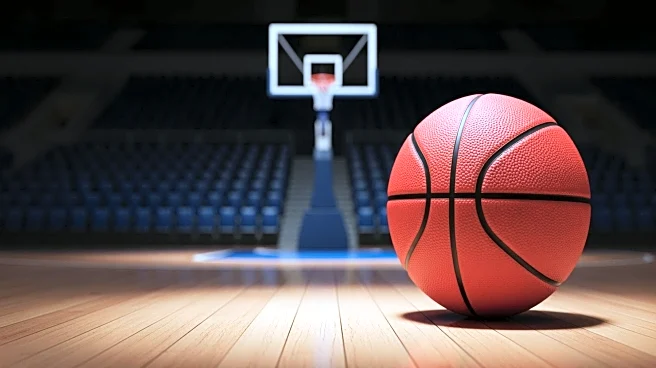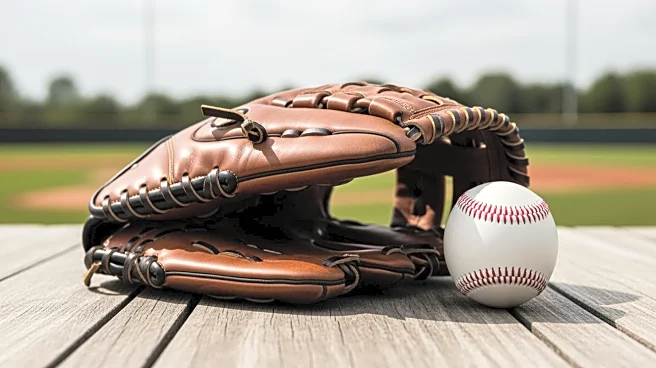What's Happening?
Milwaukee Bucks star Giannis Antetokounmpo recently sparked curiosity by questioning his NCAA eligibility to play for Marquette University. Despite being a two-time NBA MVP, Antetokounmpo humorously asked
on social media if he could suit up for the Marquette Golden Eagles, expressing interest in college basketball at the age of 30. His inquiry comes in light of new NCAA rules that allow certain G League players to return to college basketball, a policy that has seen players like London Johnson and Thierry Darlan commit to universities such as Louisville and Santa Clara. However, active NBA players remain ineligible under current regulations, making Antetokounmpo's playful suggestion impractical.
Why It's Important?
Antetokounmpo's inquiry highlights the evolving landscape of basketball pathways, where new NCAA rules are providing more flexibility for players transitioning between professional and collegiate levels. This development could impact the recruitment strategies of college teams and the career trajectories of young athletes. While NBA players like Antetokounmpo remain barred from college play, the policy change could influence the decisions of G League players considering a return to college basketball, potentially altering the competitive dynamics within NCAA leagues.
What's Next?
As the NCAA continues to adapt its eligibility rules, stakeholders in college basketball may need to reassess their approaches to player recruitment and development. The possibility of more G League players returning to college could lead to increased competition and talent influx in NCAA teams. Meanwhile, Antetokounmpo's playful inquiry may inspire discussions about further eligibility changes, though any significant policy shifts would require careful consideration by NCAA officials.
Beyond the Headlines
Antetokounmpo's social media post underscores the cultural impact of star athletes engaging with college sports, even hypothetically. It reflects the broader interest in bridging professional and collegiate basketball, potentially influencing public perception and media coverage of NCAA games. The interaction between professional athletes and college teams could foster greater fan engagement and commercial opportunities for universities.









